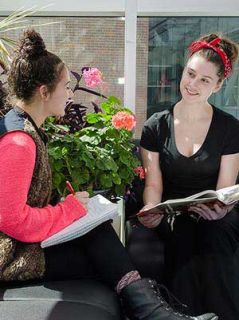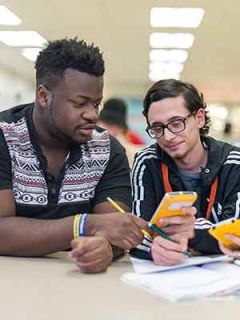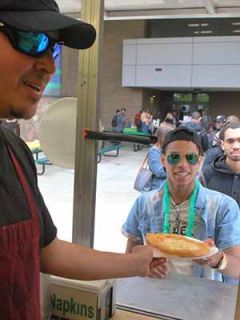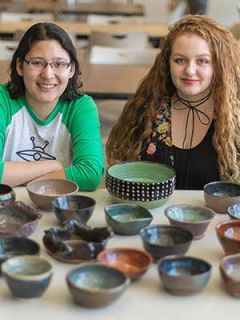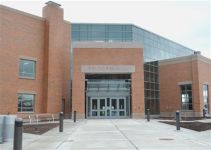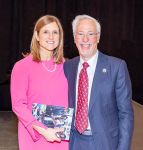News and Releases
The Student-Faculty Dynamic: Partnering for Success in the NVCC Nursing Program
Share
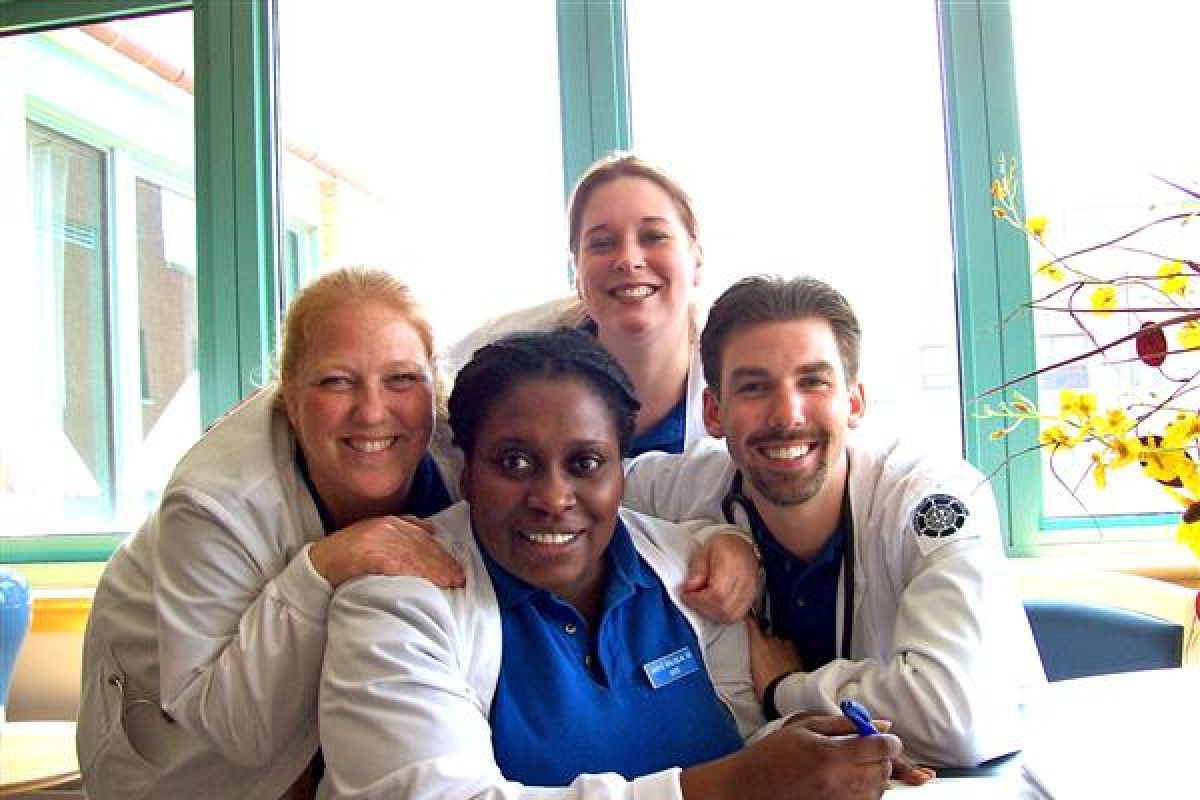
NVCC Nurses Receive State's Top Marks on NCLEX in 2013
One of the many characteristics that define the success of community college students rests in the entire college community’s belief in and commitment to student success.
It is an expectation that begins the moment a student enters college and continues through to their graduation. At Naugatuck Valley Community College, nursing students are told by the director at freshman orientation - and many times thereafter by faculty - that we expect them to be successful. It becomes ingrained. At orientation, freshmen hear directly from senior students and recent graduates about the rigors of our nursing program. There are no surprises. We outline essential strategies for success and make students and faculty partners in achieving it. As Vincent Tinto cites in Completing College, “merely stating an expectation results in enhanced performance, that higher expectations perform at a heigher level than those with low expectations, even though their measured ability is the same” (Schilling 1999). We believe that success is a partnership, and one that requires multiple layers of investment by our students, our program faculty and by our College, as a whole.
What we are doing to help our students succeed is not unique to nursing. It is founded on core universalities of human behavior that when engaged, provide powerful opportunities for personal success. While we continue to assess and evolve our techniques, the methodology is time-proven by our outstanding success rates, which are impressive alone but even more so when pressed against the national averages and other programs in the state (see chart below).
The following is an overview of some of the ways that NVCC Nursing students achieve success during their time at NVCC. My hope is to bring forward some of the things we all know as educators but don’t always find time to implement in a growing culture of assessment. I encourage anyone this strikes a chord with to contact me or my division. We believe in and are committed to student success and believe that implementing these initiatives across the curriculum can reap rewards of improved student outcomes, increased productivity and free time for faculty and the ultimate goal of creating a culture of success.
Learning Communities
The nursing program is a learning community. Students are oriented as a class and move through required coursework as a cohort, giving them a sense of belonging and shared investment in their success not only individually, but as a group.
Frequent Feedback
Students are given frequent feedback regarding their performance in the clinical area via weekly meetings with their assigned clinical instructor, with whom they review weekly formative evaluations based on the six nursing program core values. If a student needs additional assistance with meeting course objectives, they are referred to the Nursing Laboratory for remediation.
Immediate Remediation
If a student is referred to the Nursing Laboratory for remediation, the laboratory staff will spend as many hours as needed reviewing skills and concepts, which in turn contributes significantly to student confidence. More importantly, the labs, in particular the simulation activities run by faculty and lab staff, are designed to provide a safe environment as close to the real clinical setting as possible to allow students the opportunity to “safely fail” and develop skills and behaviors necessary for clinical success.
A Culture of Expectation
The program is fortunate to have retention specialist Joanne Ottman, former Director of the Allied Health, Nursing and Physical education division, on staff to implement additional strategies geared toward student success throughout the year. Initiatives include:
- Student Success Strategies Sessions before exams to help students focus their studying and practice NCLEX style questions
- One-on-one coaching for study skills and test-taking strategy development
- Helping faculty-referred students who are struggling with time management, organization, stress management or professional issues
- Organizing peer tutors, who then lead study groups or meet individually with students
- Coordination of and/or participation in Journal Club, where students review professional journal articles and engage in faculty-facilitated discussion to improve understanding of complex concepts and learn the role of scholarship in nursing
Assessment Review and Intervention
Faculty host exam reviews the day after exams for freshmen and the week following exams for seniors. Faculty volunteer their personal time to this because they are committed to student success. Students also attend on their own time in order to build their sense of commitment. At exam reviews, faculty review difficult concepts, rationales for correct and incorrect answers and test-taking strategies. If a student is having academic difficulty, they are engaged with an action plan comprised of the following components:
- ATI practice assessments with remediation
- Strategies for success with retention specialist
- Meeting with faculty member for content review
- Meeting with course leader for concept and content review and how to do active reading
- Use of discussion board in BlackBoard web-enhanced course
- Referral to the Academic Center for Excellence, Learning Resources Center and/or Center for Academic Planning and Student Success.
As the saying goes it takes a village and the strength of the community college lies in the many resources available to achieve student success.
Innovation
Innovation is also an important component of student success as it encourages all stakeholders to be forward thinking about best practices.
The faculty has piloted collaborative testing, in which testing groups are purposefully composed of students of all abilities. After taking an exam and having it graded, students have the opportunity to collaboratively go through the exam and retake it as a group (under the supervision of faculty) with the prospect of gaining additional points (initial grade-dependent). The student who struggles with certain concepts or test-taking has the benefit of hearing other students analyze the question and arrive at a decision regarding the best answer and all students benefit from the group process.
Faculty have also been steadily moving toward a student-centered classroom environment. No longer seeing themselves as the 'sage on the stage' but rather the 'guide from the side', a number of faculty have successfully 'flipped the classroom’, a concept externally gaining in popularity technologically and methodologically. For example, some faculty members provide a narrated PowerPoint presentation on BlackBoard a week prior to the class session and instruct students to listen to the discussion, do the assigned reading and arrive to class prepared to actively engage in discussion and application of key concepts. Behind the thinking is a belief in the value of students’ life experiences and degrees in other fields, which bring meaningful ideas and perspectives to the entire group.
To sum it up, the Nursing Program deliberately chooses not to view students as empty vessels waiting to be filled. Rather, we embrace learning as a true partnership between faculty and students. In the words of Mr. Tinto:
“Establishing an environment that provides students with a clear roadmap and high expectations for their success requires collaborative efforts of all members of the institution, especially the faculty. They must understand that their actions speak as loudly as their words. Once such an environment is achieved, its effect on student success can be powerful. Colleges with environments of this kind not only will help its existing students to succeed but will attract many others who seek such environments.”
Contributed by Eileen George, director of Allied Health, Nursing and Physical Education
Other Naugatuck Valley Community College News
HAVE A QUESTION? EMAIL US.
Reporters and media inquiries, please contact us at


